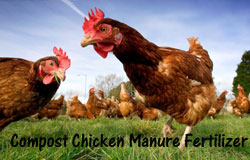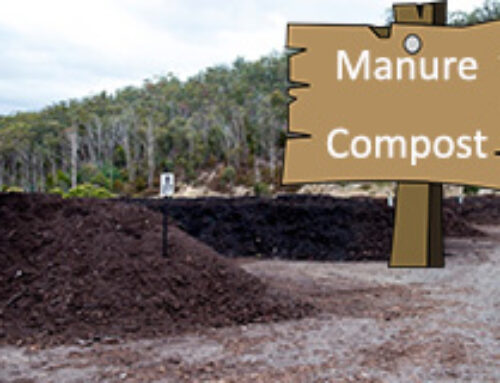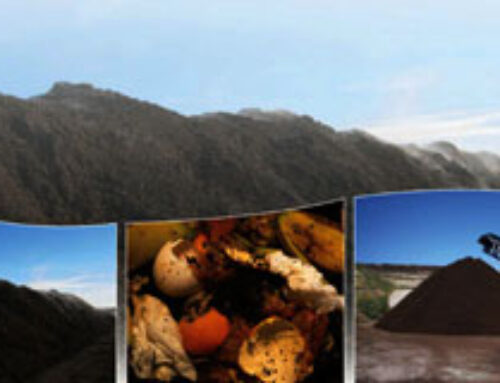Chicken manure contains high nitrogen, a good amount of potassium and phosphorus, and balanced nutrients, which makes it the highest nutrient among all livestock and poultry dung. However, if not composted properly, chicken poop is also dangerous to crops and plants because it could damage roots and 
and flies, and the ammonia is not healthy for your chickens to breathe. What’s worse, chicken manure with excess nutrients run off the land or leaches into groundwater, affecting the quality of the local surface and groundwater. To obtain maximum economic value, social benefits, and ecological effects, poultry dung should be processed and composted into organic fertilizer without pollution. Fortunately, as a good source of organic material for composting, fowl dung processed to fertilizer through chicken manure compost and granulation can help to solve the problems of flies, maggots, odor, and other pollution.
The feed intake of chicken is relatively high but due to its poor digestive ability, the feed can only stay for a short time in its digestive tract, so the output of chicken manure is very high. Statistically, each adult chicken may produce 130g-180g per day, meaning 55kg-60kg per year, thus it can be seen that a poultry farm with ten thousand chickens can produce about 1500kg of fresh manure per day. According to the relevant investigation, the planet was home to over 21 billion living chickens up to 2014, thereinto China ruled the global roost with the largest total number of chickens almost 4,540 million, followed by the USA (1,983 million). The large quantities of chicken manure are very valuable by-products with a potential gross value of more than $60 million.
How to Make Chicken Manure Fertilizer
During the feeding process, chicken cannot digest and absorb the feed completely, which leads to about 40% – 70% of nutrients expelled from the body, therefore, fowl manure is the best type of manure among poultry dung and livestock manure to use as fertilizer. Compared with horse, cow or steer manure, organic fertilizer made from chicken dung can provide more Nitrogen, Phosphorus, and Potassium to soil and plants. According to the testing of the relevant department, fresh chicken manure contains about 70% water content, 25.5% organic matter, 1.63% nitrogen, 1.54% phosphorus, and 0.85% calcium, which makes chicken dung suitable to be used as raw materials for organic fertilizer production. Moreover, with high nitrogen content and relatively lower carbon content, it is necessary to add rice husk or straw to increase C/N ratio and reduce moisture when making chicken manure fertilizer. Meanwhile, people should also add humic acid to fix ammonia-nitrogen as ammonium humate, reducing nutrient loss and enhancing fertility and soil improvement during the process of fermentation.
Taking making 1 ton organic fertilizer, for instance, Whirlston will introduce a method about how to process chicken manure into organic fertilizer:
- Mixing 800-900kg fresh chicken dung with 50-100kg rice hull and 50kg humic acid uniformly, then adding 5-10kg rice bran (or wheat bran, corn meal, and so on) for mixing, evenly spreading on fermentation raw materials, and then stirring equably for pile composting. If you have a large number of materials waiting to mix, it is better to use professional equipment – a horizontal-type organic fertilizer blender for fast and even mixing.
- For fertilizer fermentation, C/N ratio should be adjusted to 25-30:1 and PH value should be adjusted to 6-8ph. Due to fresh chicken manure with high moisture, people should add 20% – 30% straw, haulm, or mushroom residue together into raw materials, so as to adjust water content. It is very crucial to control moisture during making fertilizer, not too high and not too low, and there is a way to judge water content appropriately: grasping materials tightly, water is visible but without dropping down, and materials can disperse when falling to the ground. Remark: if farmers do not want to reduce water content quickly, a solid-liquid dewatering machine is a quite good solution for separating the solid chicken dung from the liquid, accelerating the decrease of moisture in manure.
- Creating a fermentation pile: the pile should not be too small and too low, which may affect the composting effect. Usually, for a better fermentation effect, the height is about 0.8m – 1.5m, the width is around 2m, and the length should over 4m.
- Composting the material piles when the temperature of the pile is up to 65 Celsius. As we all know, ventilation is an important factor affecting compost temperature and fermentation effect, and the purpose of composting is to improve aeration conditions within piles, promote the reproduction of beneficial microorganisms under high temperatures, and accelerate the conversion of ferment materials, thereby achieving homogeneous mixing, consistent heating, and coincident composting. Here, adopting a compost turner machine to turn over the materials (turning once or twice per day during the fermentation process), control chicken manure compost temperature, and supplement the oxygen required by fermenting.
- Normally, it takes about one week to finish composting and fermentation, after that, chicken manure would realize complete deodorization and play a role in sterilization and deinsectization at the same time. For better packaging and a good market, people can proceed to granulating process with a disc pan granulator so as to make granulated organic fertilizer, choosing the suitable granulator depending on raw materials quantity and requirement for production.
Successful Case:
In Vietnam, one of our customers – Mr. Nguyen has a poultry farm with over 20,000 chickens, producing a good deal of poultry dung each day. Before using Whirlston organic fertilizer machines to process this chicken manure, he was very upset because this manure without proper processing was stunk to high heaven, heavily polluting the surrounding environment and the residents living. What’s worse, the smelly chicken manure would generate harmful bacteria that had a strong impact on the breeding environment of poultry farms, leading to quite a high sickness rate and death rate. Afterward, Mr. Nguyen sought help from our website, and after receiving our solution and suggestion, he decided to use professional equipment – a small-scale organic fertilizer plant to process chicken manure organic fertilizer. Since then, the poultry farming environment has been greatly improved and foul smell has reduced dramatically. Above all, fertilizer made from chicken dung has high fertilizer efficiency and is easy to absorb without burning the root and seedling, not only playing a very significant part in the increased yield and revenue of crops but also creating additional high income from the organic fertilizer sales market. These fertilizers can increase the soil’s moisture-holding and nutrient-holding capacities, producing excellent soil for vegetables and crops to grow bigger and healthier, which makes them enjoy great popularity in the fertilizer market.
Related Reading:
How to Make Cow Dung Fertilizer
How to Make Food Waste Fertilizer







